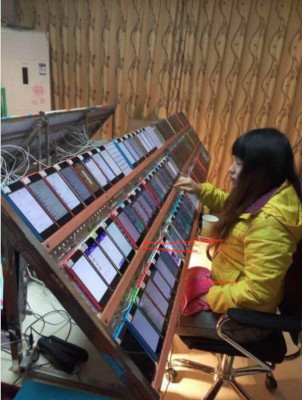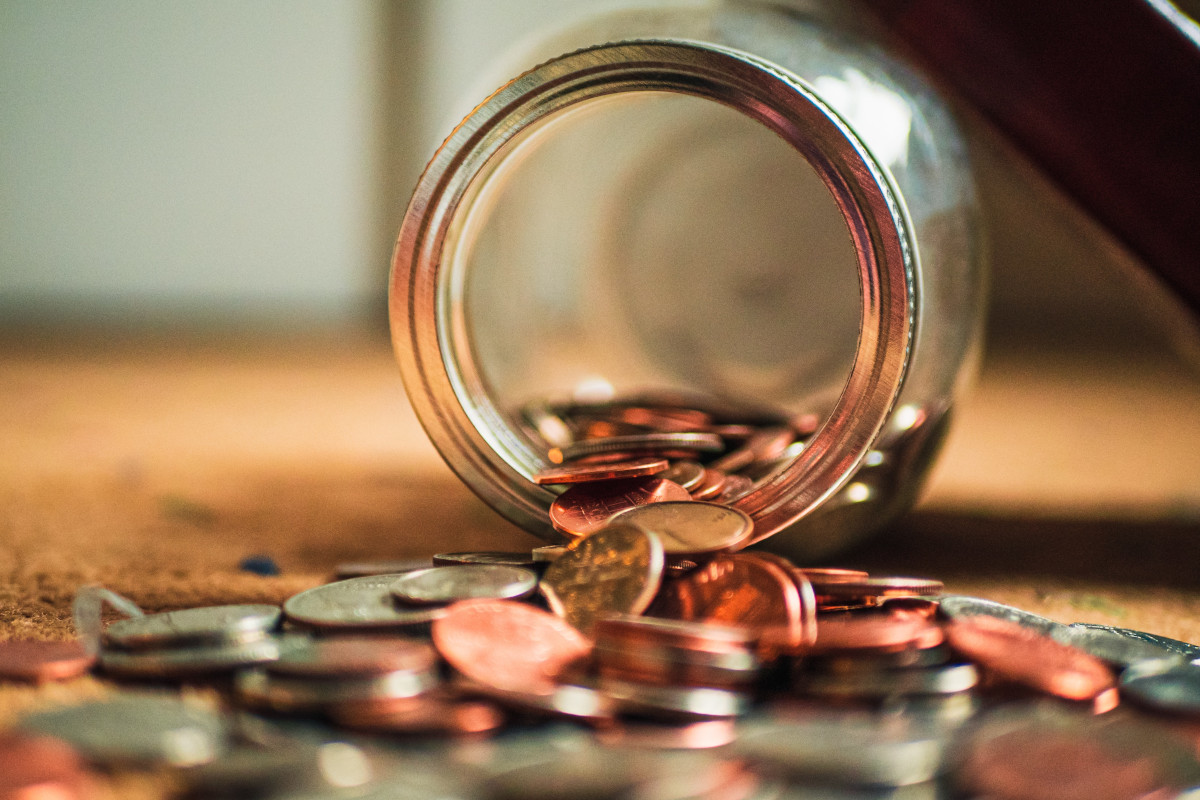The cover image for this post is by Josh Appel
This blog post was written by Jamie.
Imagine the situation: you have a podcast and, while scrolling through Facebook (or some other social media site) you see someone offering to sell you “guaranteed downloads for the low price of…”
“What a fantastic idea,” you think. So you click through and are taken to a page which asks for your credit card details and the address of the RSS feed for your podcast. A few clicks later, and you start checking your podcast host; lo and behold, the download numbers start going up. But how did this happen? And is it even a “good” thing to do?
Downloads. Do They Matter?
Before we start to talk about whether “guaranteed downloads” are worth the money, let’s talk about downloads from a podcasting perspective.
All podcast hosts offer download stats, but not all download stats are made equal. For instance, if you have a website with an embedded player on it which is configured incorrectly, the browser will start to pre-load (i.e. stream) the episode before the user has hit the play button - which is as soon as the page has loaded. With some podcast hosts this counts as a download even though the episode has not been “downloaded”.
Worse still, some podcast hosts count multiple downloads from the same device as individual downloads. Sure, each successful download was a transfer of the file from the podcast host down to your device, but are you going to listen through each and every downloaded copy?
Ok, so maybe your podcast host filters out multiple download requests from the same device. But what if I download an episode of a podcast with my desktop computer, laptop, phone, and smartwatch?
because of course there are podcatchers on smartwatches
They will likely all count as individual downloads. But again, you’re not going to listen to each downloaded file, are you?
Realistically, you should be focussing on engagement with the consumers of your podcast rather than focussing on arbitrary numbers like downloads, watches, or listens.
And aside from THAT, because of the way that RSS works, it’s almost impossible to track subscribers; meaning that it’s almost impossible to get accurate numbers for listens. There are podcast hosts who are able to track listeners in greater detail (such as Acast), and some closed apps (like GoodPods) which are designed to create their own segmented area of podcasting with the precise goal of tracking listeners. I’ll leave it up the reader to figure out why I’m not recommending these services and apps.
So Do They Matter?
There are two main reasons why you may want to track your podcast’s downloads:
- Personal pride
- To get sponsorship money
I’m not going to discount the first item. Seeing the download numbers go up can be a fantastic ego boost, and can make the hours you’ve spent working on your podcast seem worthwhile.
Putting that to one side though, you might want to see sponsorship money coming in via your podcast. And in order to do that, you’ll need to be tracking downloads. But not just any downloads.
This is where the IAB comes in.
The IAB have a set of rules and standards for what counts as a download of a podcast episode. Each podcast host that is IAB certified
some of the hosts listed here are IAB certified
has it’s own set of rules for filtering out non-download downloads, but most of them use the following metrics:
- Applying IP address blacklists – Removes downloads coming from IP addresses blacklisted for behavior not consistent with a website visitor or podcast listener (for example, a server caching content).
- Applying User Agent blacklists – Removes user agents that are known bots (computer programs that operate as an agent for a user or other program or to simulate a human activity).
- Ensures that at least one minute of playable content is downloaded.
The IAB certified stats are the ones that your potential sponsors will look for, because they can be backed up both the IAB and your podcast host.
So yes, in a roundabout way, download stats matter… to some people.
So I Can Buy Downloads?
Yes. But I would advise against it because, as we’ll see in a moment, it’s not actual growth for your podcast and has no bearing on whether more people will find your podcast at all.
Let’s talk about how buying downloads works:

Whilst this image has been shown to have been “decontextualised” by one website, it shows off how most of the “guaranteed downloads” services work. Essentially, someone is hired to access content on a number of different devices. They don’t have to watch or listen to the content, they don’t even have to be engaged in what they are doing. They are simply going through the motions of accessing content, in auto pilot.
The problem for podcasters is that the person in this image has been replaced with a bot, so there’s even less engagement. The bot is part of a server farm, connected to Tor (or a VPN), with MAC address spoofing, which are set to download your episodes multiple times then delete them once they’ve been downloaded.
Its the equivalent of releasing a song, then buying every copy in existence in order to reach the top 40 charts. Sure, you made it to the top 40, but no one actually listened to your song. And worse still, it cost you a bunch of money to achieve it.
But paying for downloads, your numbers (if you focus on those) become meaningless. They no longer represent the size of your audience, just the amount of money you are willing to spend on inflating those numbers.
You might be thinking, “but I need big numbers to get sponsors!” and that’s true. But you also need engaged listeners. Sponsors aren’t really looking at the numbers, they’re looking for the widest reach for their message, and they want a percentage of that audience to convert to sales (click the button, use the promo code, whatever).
Selling a large download number to a sponsor where there is no audience is both short sighted (they won’t sponsor you for long if they aren’t seeing a return in investment) and could be seen as illegal (you’ve sold something that you don’t actually have).
Download numbers are great, and big download numbers are even better. But audience engagement, and niching down is what sponsors care about.
That is, if you care about sponsorship.
In Closing
Paying for downloads is both a waste of your money and will make your actual download numbers pointless. However, you can grow your audience organically or via advertising.
So the next time you’re looking at an ad for “guaranteed downloads”, ask yourself whether this is a marketing service, or just someone who wants to give you a one-time, pointless, numbers boost.
